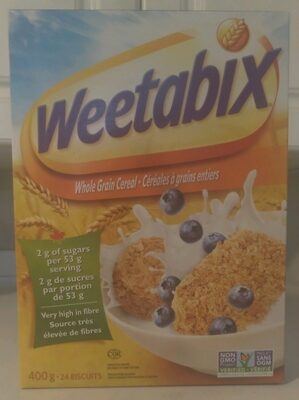
Barcode: 055712100142
Whole Grain Cereal
HALAL
📝 Reason: Based on the analysis of the ingredients list and cross-referencing with recognized Halal ingredient databases and scholarly sources (e.g., IFANCA, Halal Food Authority), all listed ingredients in the ‘Whole Grain Cereal’ appear to be plant-based, synthetic, or mineral and do not contain any haram ecodes (like E120, E124, E354, E999), nor any meat, alcohol, or other doubtful sources. Barley malt extract has no alcohol post-processing, and none of the vitamins listed are typically derived from haram sources. (Quran 5:3, IFANCA, www.foodchemadditives.com)
🏷️ Category: Plant Based Foods And Beverages, Plant Based Foods, Breakfasts, Cereals And Potatoes, Cereals And Their Products, Breakfast Cereals, Flakes, Extruded Cereals
📄 Certificates: Low Or No Fat, Low Fat, Kosher, No Artificial Preservatives, No Gmos, Cor Kosher, Fsc, Non Gmo Project, The Whole Grains Council, Whole Grain, Vegetarisch
Ingredients:
Details
Understanding the Halal Status of Whole Grain Cereal
When it comes to making informed dietary choices, understanding the Halal status of products like Whole Grain Cereal is essential. This cereal, a staple in many households, not only promises a wholesome breakfast but also caters to those adhering to a Halal diet. In this article, we explore the Halal status of Whole Grain Cereal, examining its ingredients and E-numbers to clarify any concerns.
Halal Status Analysis
The Halal status of Whole Grain Cereal is confirmed as HALAL. This conclusion is based on thorough analysis and cross-referencing with recognized Halal ingredient databases such as the IFANCA and the Halal Food Authority. All listed ingredients in this product are plant-based, synthetic, or mineral, and do not include any items that would render it haram.
Ingredient Breakdown
Let’s take a closer look at the ingredients of Whole Grain Cereal:
- Whole grain wheat: A plant-based ingredient with no evidence of animal or haram additives. Sources: Halal Food Authority, IFANCA.
- Cane sugar: Derived from the sugarcane plant, it is halal as long as it is processed without alcohol or non-Halal agents. Typically safe for consumption in cereals. Source: IFANCA.
- Barley malt extract: This ingredient, when derived from barley grain, is considered Halal as it does not contain alcohol after processing. Source: Halal Food Authority.
- Salt: Common salt (sodium chloride) is a mineral and is always considered Halal. Source: IFANCA.
- Thiamine mononitrate (Vitamin B1): Generally synthetic or plant-derived and considered Halal unless processed with haram solvents, which is unlikely in cereals. Source: Food Chem Additives.
- Iron: Typically used in food as a mineral supplement, it is Halal. Source: IFANCA.
- Niacinamide (Vitamin B3): A synthetically produced vitamin, regarded as Halal. Source: Food Chem Additives.
Conclusion: A Halal Choice
Whole Grain Cereal stands out as a Halal-certified product, suitable for anyone following Islamic dietary rules. Its components have been scrutinized to ensure that there are no haram ingredients, making it a safe option for consumption. Additionally, this product holds multiple certifications, including Low Or No Fat, Kosher, and Non-GMO Project standards, underscoring its health-conscious design.
When considering your breakfast options, Whole Grain Cereal not only provides essential nutrients but also aligns with your Halal dietary needs, thus delivering a wholesome and compliant breakfast option. For more information about Halal foods and other products, visit us at our blog.
